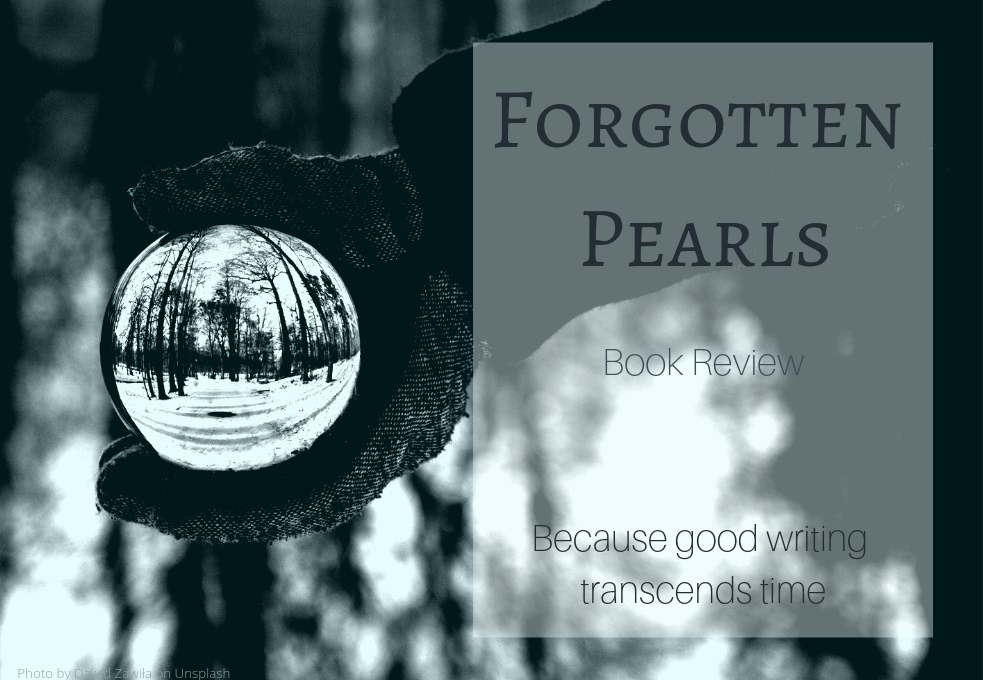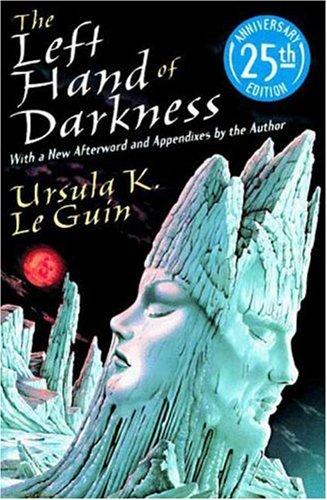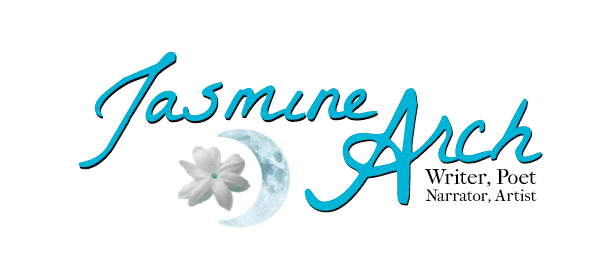Book Review – Forgotten Pearls: The Left Hand of Darkness by Ursula K Le Guin


Forgotten Pearls. Yes. It’s a new thing. My friend Anike and I were talking about it a few weeks ago. I’ve been writing book reviews on contemporary books. But what about the gems that were mined and polished yesterday?
She and I (and hopefully others) will share episodes of this series of special book reviews, putting a bit of spotlight on the treasures of the past. Because good writing transcends time.
After reading a number of contemporary novels and books on the craft of writing, I decided to explore new horizons. The next book in my brain’s diet was of a different vintage.
I remember reading older scifi and fantasy novels as a child, but this was the first time I read one since beginning to write myself.
It’s an exercise I’ll be repeating, I believe. I highly recommend it. Reading or realising how how literature has evolved is not even close to the same as having those evolutions bite you in the nose as you bury it in the pages of a book.
Ursula K Le Guin wrote The Left Hand of Darkness in 1969, winning both a Nebula and a Hugo award.
Le Guin has been on my to-read list for as long as I can remember, but somehow I never got around to actually reading any of her books.
The story follows Genly Ai, a Terran native who relates his adventures on the planet Gethen, where he is on a diplomatic mission to convince the natives to join the Ekumen, a union of planets across the Galaxy that are all inhabited by humanoid lifeforms.
Ai’s memories are supplemented with Gethenian folk tales and legens, excerpts from the journal of his friend Estraven, and reports from the first Ekumenical observers who explored Gethen.
The excerpts help establish Ai’s credibility as a narrator, and as a reader, I was dragged along in his footsteps across the two most prominent nations of an icebound world.
Le Guin’s worldbuilding is on point, and she uses it to hold a mirror up to humanity. Throughout this book, and without a doubt her other ones as well, she forces us to look at the world we live in with a critical eye, through the comparison with that other world.
I can’t imagine her not doing this in her other work. For that reason alone, I’d read more of it. I can’t promise to never write something along the lines of The World Through the Lens of Ursula K Le Guin. Sorry, not sorry.
That being said, while I very much enjoyed Le Guin’s prose, it’s clearly not what you’d call contemporary writing.
 She uses more adverbs than one of us would get away with in an attempt to get one of our own pieces published, and she’s clearly not into the whole “less is more” philosophy.
She uses more adverbs than one of us would get away with in an attempt to get one of our own pieces published, and she’s clearly not into the whole “less is more” philosophy.
The opening chapter slips from past tense to present and back, and the ending was absolutely frustrating.
It starts out exploring this strange world where every native is neither man nor woman until they enter their monthly sexual cycle, developing either male or female genitals. The novel then zooms out and explores the effect this has on interpersonal relationships, and on society as a whole.
The story then evolves into an adventure, filled with action, betrayal, desolation, and a race against time across a glacier and through snowstorms.
And then it fizzles out into a anticlimactic letdown. By the time I made it to the last page, I was frustrated to say the least, actually flipping back and forth through the ebook to make sure I hadn’t missed any bits.
Somehow it makes me feel like Le Guin kept writing past what would have been a natural and satisfying ending to the story. The place where she ends her novel seems more like an epilogue that tries to tie up some loose endings. In any case, it failed to satisfy for me.
Still, when you open the book, she grabs you by the throat and she doesn’t let go for quite a while.
The whole thing makes me wonder whether the issue is in part caused by a difference in expectation between 1969 readers and their 2018 counterparts. Or maybe it’s just me. Who knows?
For this reason alone, I shall have to read more vintage scifi and fantasy.
The sacrifices I make for the sake of writing.
Sigh
(insert dramatic gesture here)
If you read this book at some point, I’d love to exchange thoughts on it.
Hugs
Jasmine

4 Responses
It’s getting harder and harder to read just to enjoy it, isn’t it?
It is, yes. But I’m learning more and more by keeping at it.
[…] covered The Left Hand of Darkness by Ursula K Le Guin that ventures into social science fiction, so I will be going over Le Guin’s fantasy side with […]
[…] The Left Hand of Darkness, by Ursula K Le Guin, reviewed by Jasmine Arch. […]